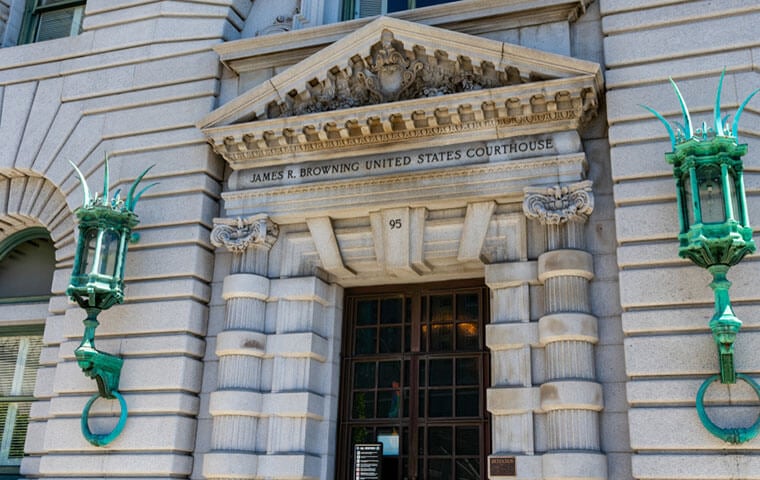 Some of the contemplated RIFs would “essentially eliminate Congressionally created agencies or prevent them from fulfilling their statutory duties,” said a decision. Image: Michael Vi/Shutterstock.com
By: FEDweek Staff
Some of the contemplated RIFs would “essentially eliminate Congressionally created agencies or prevent them from fulfilling their statutory duties,” said a decision. Image: Michael Vi/Shutterstock.com
By: FEDweek StaffUPDATED: The Ninth Circuit federal court of appeals has upheld a trial judge’s order generally barring federal agencies from conducting further RIFs and reorganizations, a decision that the Trump administration immediately challenged before the U.S Supreme Court.
The appellate decision came in response to the Justice Department’s appeal of a permanent injunction issued by the federal district court for the Northern District of California. The case involves a claim by the AFGE union and several other organizations against an executive order and later guidance directing agencies to plan for major layoffs and restructuring–some of which have been paused in mid-stream due to the lower court’s order.
The majority in a 2-1 decision agreed with the lower court that the challenge is likely to succeed, saying that “Neither the Constitution nor any federal statute grants the President the authority to direct the kind of large-scale reorganization of the federal government at issue.”
Some of the contemplated RIFs would “essentially eliminate Congressionally created agencies or prevent them from fulfilling their statutory duties,” it said, adding that they “appear inextricably intertwined with broad agency reorganization, which the president undoubtedly cannot undertake without Congress.”
The ruling also agreed with the trial court that the government would not suffer an irreparable injury by keeping the status quo while the case proceeds; and that the FLRA and MSPB lack the authority to consider the claims. The dissenting judge disagreed with those conclusions and said “the President has the right to direct agencies, and OMB and OPM to guide them, to exercise their statutory authority to lawfully conduct RIFs.”
In asking the Supreme Court to stay of the injunction, the Justice Department essentially repeated the same arguments that the appeals court rejected. It says the order and guidance “are unquestionably lawful” as within the President’s authority to manage federal agencies without a need for approval from Congress; that “many of the RIFs have not yet been finalized”; and that any challenges must be filed through MSPB or FLRA channels before going to federal court.
The injunction “interferes with the Executive Branch’s internal operations and unquestioned legal authority to plan and carry out RIFs, and does so on a government-wide scale . . . the injunction has brought to a halt numerous in-progress RIFs at more than a dozen federal agencies, sowing confusion about what RIF-related steps agencies may take and compelling the government to retain—at taxpayer expense—thousands of employees whose continuance in federal service the agencies deem not to be in the government and public interest,” it says.
In several other appeals involving federal personnel matters, the high court has either sidestepped the issue or lifted lower court orders against the administration while cases continue. Those decisions have focused on procedural issues and have not directly addressed the underlying issues, which have a common theme of the extent of Presidential powers.
In other recent legal developments:
* A judge of the U.S. District Court for the Western District of Washington granted a permanent injunction against the administration’s decision to revoke bargaining rights for TSA screeners, in a case brought by the AFGE union and other organizations.
* Former employees OPM and GSA have separately filed class-action type complaints before the MSPB challenging RIFs at those agencies, while a hearing officer of MSPB has granted such status to a group of former DHS probationary employees.
Senate Eyes Vote to Pay Federal Employees Working Unpaid
Series of Bills Offered to Address Shutdown’s Impact on Employees
Public Starting to Feel Impact of Shutdown, Survey Shows
OPM Details Coverage Changes, Plan Dropouts for FEHB/PSHB in 2026
Does My FEHB/PSHB Plan Stack Up? Here’s How to Tell
2025 TSP Rollercoaster and the G Fund Merry-go-Round
See also,
TSP Takes Step toward Upcoming In-Plan Roth Conversions
5 Steps to Protect Your Federal Job During the Shutdown
Over 30K TSP Accounts Have Crossed the Million Mark in 2025

